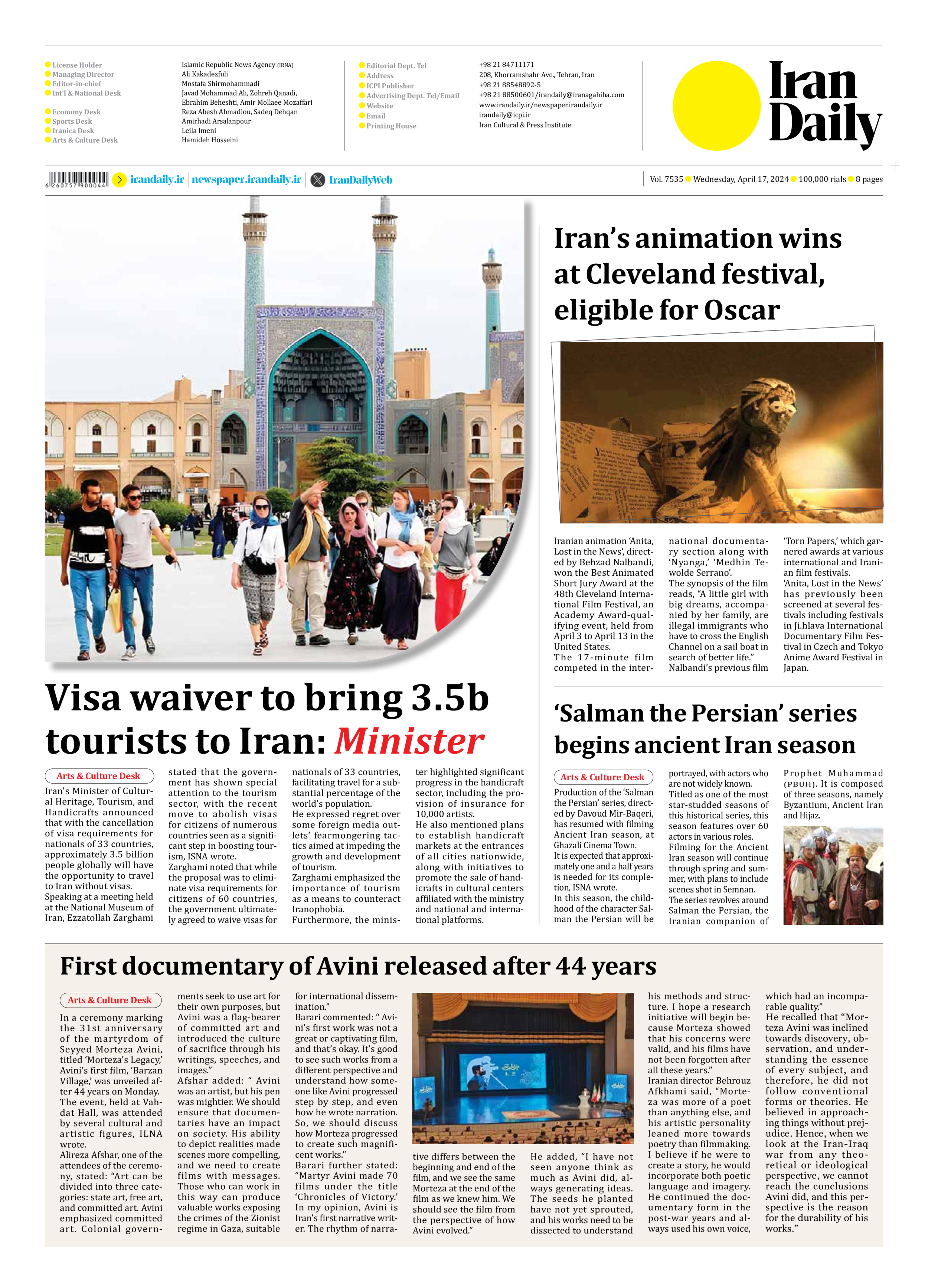
Copy in clipboard...
First documentary of Avini released after 44 years
The event, held at Vahdat Hall, was attended by several cultural and artistic figures, ILNA wrote.
Alireza Afshar, one of the attendees of the ceremony, stated: “Art can be divided into three categories: state art, free art, and committed art. Avini emphasized committed art. Colonial governments seek to use art for their own purposes, but Avini was a flag-bearer of committed art and introduced the culture of sacrifice through his writings, speeches, and images.”
Afshar added: “ Avini was an artist, but his pen was mightier. We should ensure that documentaries have an impact on society. His ability to depict realities made scenes more compelling, and we need to create films with messages. Those who can work in this way can produce valuable works exposing the crimes of the Zionist regime in Gaza, suitable for international dissemination.”
Barari commented: “ Avini’s first work was not a great or captivating film, and that’s okay. It’s good to see such works from a different perspective and understand how someone like Avini progressed step by step, and even how he wrote narration. So, we should discuss how Morteza progressed to create such magnificent works.”
Barari further stated: “Martyr Avini made 70 films under the title ‘Chronicles of Victory.’ In my opinion, Avini is Iran’s first narrative writer. The rhythm of narrative differs between the beginning and end of the film, and we see the same Morteza at the end of the film as we knew him. We should see the film from the perspective of how Avini evolved.”
He added, “I have not seen anyone think as much as Avini did, always generating ideas. The seeds he planted have not yet sprouted, and his works need to be dissected to understand his methods and structure. I hope a research initiative will begin because Morteza showed that his concerns were valid, and his films have not been forgotten after all these years.”
Iranian director Behrouz Afkhami said, “Morteza was more of a poet than anything else, and his artistic personality leaned more towards poetry than filmmaking. I believe if he were to create a story, he would incorporate both poetic language and imagery. He continued the documentary form in the post-war years and always used his own voice, which had an incomparable quality.”
He recalled that “Morteza Avini was inclined towards discovery, observation, and understanding the essence of every subject, and therefore, he did not follow conventional forms or theories. He believed in approaching things without prejudice. Hence, when we look at the Iran-Iraq war from any theoretical or ideological perspective, we cannot reach the conclusions Avini did, and this perspective is the reason for the durability of his works.”







